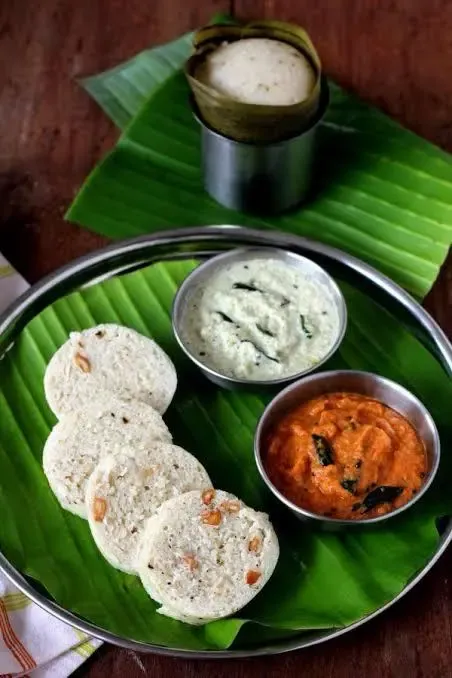Is Kancheepuram’s Sacred ‘Koil Idli’ About to Receive a GI Tag?

Synopsis
Key Takeaways
- Koil Idli is an iconic dish from Kancheepuram.
- The dish is linked to the Sri Varadharaja Perumal Temple.
- It features a unique preparation method that has been preserved for centuries.
- The GI tag will help protect its traditional significance.
- Koil Idli is part of temple offerings and is cherished by devotees.
Kancheepuram, July 23 (NationPress) The legendary Koil Idli, a cherished delicacy traditionally offered at the historic Sri Varadharaja Perumal Temple in Kancheepuram, is on track to obtain a Geographical Indication (GI) tag. This initiative aims to solidify its cultural and culinary importance.
The Tamil Nadu Food Processing and Agri Export Promotion Corporation (TNAPEx) has officially applied for GI status, receiving backing from the Madurai Agribusiness Incubation Forum, which is a collaboration between NABARD and the Tamil Nadu Agricultural University (TNAU).
Should this recognition be granted, it will provide legal protection and enhance efforts to safeguard the unique traditional preparation techniques of the Koil Idli.
This special type of idli differs from the soft and fluffy versions typical of South India. It is celebrated for its coarse texture, rich flavor, and sacred importance.
Measuring nearly a foot in length, it is included in the daily ritual offerings to Lord Varadharaja during the temple’s Thiruvaradhanai ceremony. By 7:45 a.m., these steamed idlis are distributed to devotees as prasadam, alongside other traditional offerings like Venn Pongal, Ksheera Annam, Dhadhyonam, and Puliyodharai.
The method of preparing these idlis is steeped in centuries of temple tradition. The base consists of coarsely ground parboiled rice and whole urad dal, combined with crushed black pepper, cumin seeds, dry ginger powder, asafoetida, curry leaves, ghee, sesame oil, sour curd, and salt.
The batter is fermented overnight and then poured into bamboo baskets or steel tumblers lined with dried Mandharai leaves, which contribute a unique aroma. The containers are covered with additional leaves and steamed gently for up to an hour.
S. Balaji, who has been preparing Koil Idlis at the temple’s Pathukadai prasadam counter for over 40 years, emphasizes the importance of adhering to the recipe precisely.
“Even a minor variation alters the flavor. The Mandharai leaves are essential. People travel from far and wide to take it home in significant quantities,” he remarked.
Religious scholar Akkarakani Srinidhi Swami praised the initiative to secure GI status. “While the exact origins of this offering may be lost to time, its role in temple rituals has remained constant. It is only fitting that such a sacred dish receives the recognition it deserves.”
Obtaining the GI tag will safeguard and promote one of Tamil Nadu’s most esteemed culinary offerings—one that harmonizes spirituality, tradition, and flavor.










